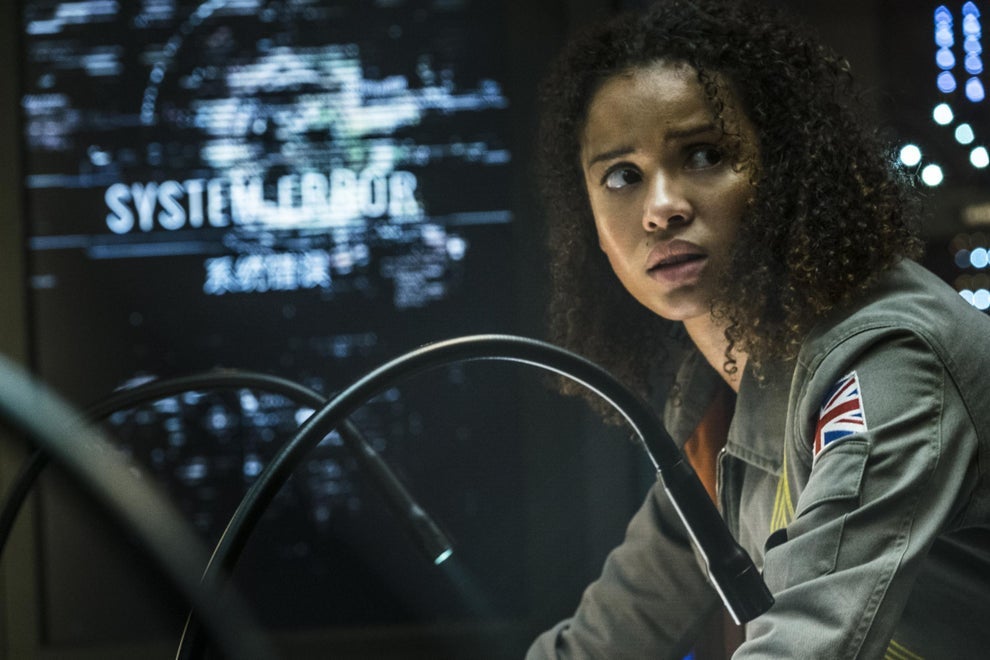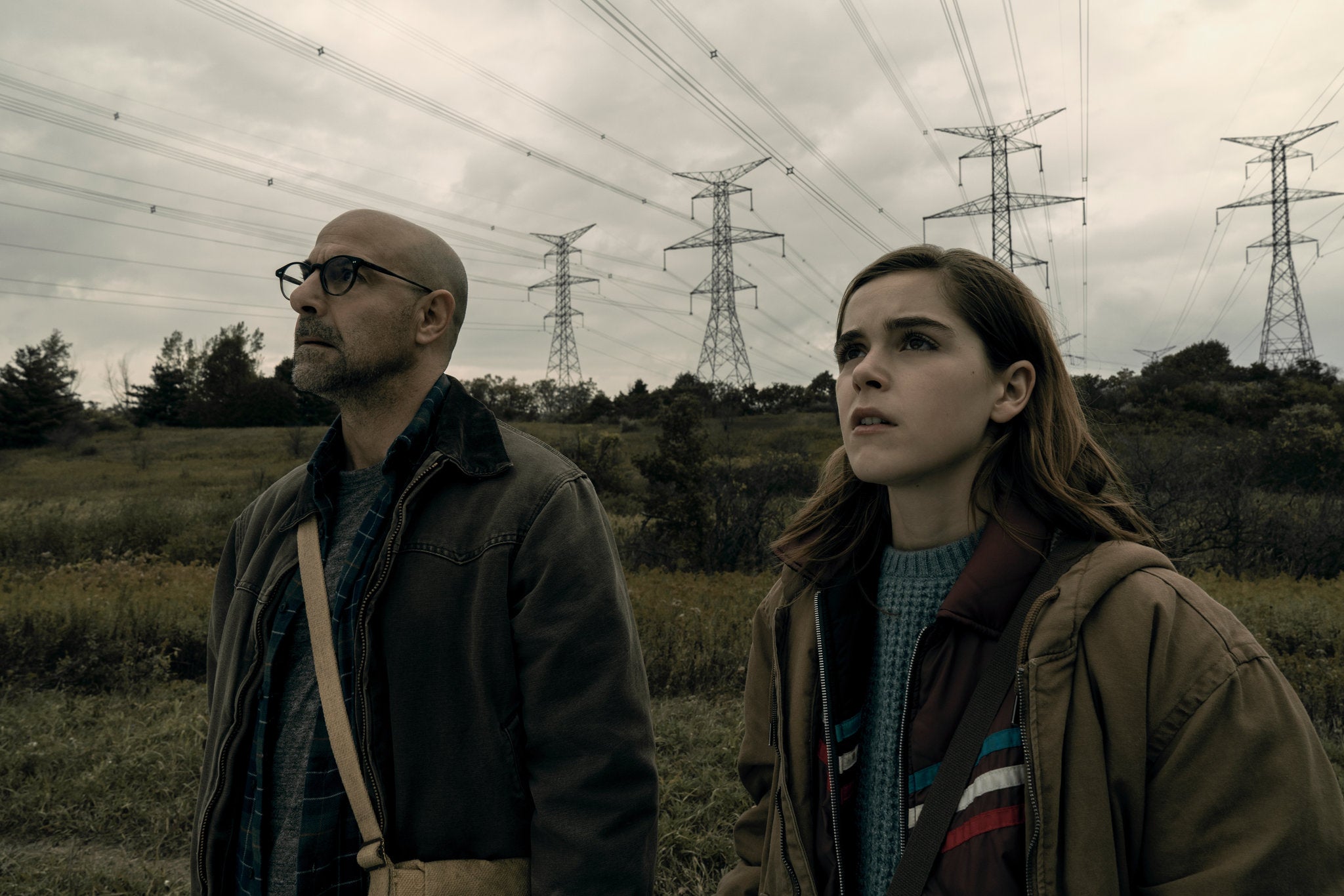
For those who have a masochistic streak, there are few things more fulfilling than hate-watching awful films and TV shows.
And there are plenty of them: Ben Wheatley’s lavish yet weirdly empty adaptation of Rebecca appalled critics and fans alike in 2020, as did fellow period drama adaptation Persuasion.
When the first season of Emily in Paris hit screens, it inspired a deep hatred in critics who condemned it for “caricaturing” French people as “vile snobs”.
But fans still inhaled both of these abominations within hours of them arriving online.
Rebecca, Persuasion and Emily in Paris were all brought into the world by Netflix, so it only seemed fitting that we collate a list of the platform’s top 20 critical flops here…
Television
Emily in Paris
In a one-star review, The Independent’s critic Ed Cumming listed seven groups of people who would not enjoy this series, and it’s hard not to fall into one of those categories, one of which is “anyone who’s eaten a croissant”. He also described the titular lead – played by Phil Collins’ daughter Lily – as “obnoxious” and her banter as “faintly agonising”.
Hollywood
Ryan Murphy’s big-budget, all-star ode to the golden age of cinema should have been a hit, but was near universally panned by critics when it was released earlier this year. The Independent’s Ed Cumming called the show a “big shiny mess”, reading: “Hollywood can never decide whether it wants to be an aspirational woke-alternate-reality fantasy or a nihilistic black comedy, and its conflicting tones sit uneasily together.”
Space Force

This satirical show starring Steve Carell did not have enough comic content to constitute a whole series, according to The Independent’s critic Ed Cumming who wrote that the show “struggles to get out from under the biggest joke of all, which is that it is based on a real US government department. It’s material for a sketch, rather than a whole series, and it would be funnier if it wasn’t true.”
Insatiable
One of the most controversial Netflix Originals of all time, Insatiable was accused of fat-shaming before it was even released, with over 100,000 people signing a petition calling for it to be cancelled. The show didn’t fare much better with critics once it finally aired, with The Independent’s review reading: “Insatiable is more than happy to slap the label of ‘satire’ over itself with little to no understanding about what it actually entails.”
Away
In a one-star review for The Independent, Ed Cumming wrote of this sci-fi series: “Hilary Swank commits admirably to her role, frankly beyond what she ought to be able to do with the script, but even her shoulders, and the rest of the Atlas’s crew, aren’t broad enough to carry us away.”
What/If
This gender-flipped version of Indecent Proposal starring Renée Zellweger received a lukewarm critical reception when it was released in 2019. While Zellweger’s performance was praised, the show struggled to make a splash, with The Independent’s Clarisse Loughrey writing that “in the end, a deep and meaningful premise is undercut by all the melodramatics”.
Marco Polo
This drama about the Venetian merchant and adventurer was ripped apart by The Atlantic’s Lenika Cruz, who said: “A big budget, high hopes, and good intentions it seems wasn't enough to buoy a boring protagonist and flaccid story.” The series scored an unfavourable 66 per cent on review aggregator Rotten Tomatoes – but its audience score was an impressive 94 per cent, making it the perfect hate-watch.
Gypsy

With Sam Taylor-Johnson directing and Naomi Watts starring as a manipulative psychologist, Gypsy had all the markings of a hit, but received poor reviews on its 2017 release. IndieWire’s Ben Travers wrote of the series: “Intended as an exploration of a middle-aged woman's unrestrained desires, [Gypsy] never elevates its drama to anything thematically challenging or narratively titillating.”
Hemlock Grove
This horror series scored a pitiful 38 per cent on review aggregator Rotten Tomatoes. The supernatural show about the goings-on in a Pennsylvania steel town was deemed “idiotic, tedious, and frequently offensive” by Den of Geek’s Sarah Dobbs.
Lunatics
Australian comedian Chris Lilley may have found success with Summer Heights High and Ja’mie: Private School Girl, but the joke was considered to be wearing thin when Lunatics was released in 2019. In the comedy series, Lilley dons a fat suit, plays a seven-foot-tall female student and mocks the transgender community, leading The Guardian’s Luke Buckmaster to write in his one-star review: “[Lilley’s] approach has never felt as laboured, or as formulaic, or as devoid of ideas.”
Film
Persuasion
With Dakota Johnson, Henry Golding and Richard E Grant at the helm, Netflix’s take on Persuasion should have been a hit, right? Wrong. The film was poorly received by critics and Austen fans alike, with The Independent’s Clarisse Loughrey writing that “at no point during Carrie Cracknell’s directorial debut do you ever get the sense that anyone’s actually read Persuasion”. Amanda Whiting, meanwhile, questioned how the streamer could “get Jane Austen so terribly wrong”. Ouch...
The Kissing Booth
Netflix has branched into the world of teen movies and romcoms with varying degrees of success, with some receiving critical acclaim (To All the Boys I’ve Loved Before, Always Be My Maybe) while others were panned. One such flop is The Kissing Booth, which was condemned for being both clichéd and misogynistic, with The Independent’s Clarisse Loughrey writing in her two-star review of the 2020 sequel that the follow up wasn’t “as aggressively problematic as its predecessor, at least”.
Rebecca

In a two-star review for The Independent, critic Clarisse Loughrey described this adaptation of Daphne du Maurier’s classic book as “dreary and garish” and its lead actors Armie Hammer and Lily James as behaving like “two planks of wood”. She concluded: “This Rebecca is du Maurier reduced to an airport novel.”
The Ridiculous 6
This Adam Sandler spoof western was branded “unwatchable” by critics. Hastily put together with some dodgy CGI, the movie co-stars Terry Crews, Taylor Lautner and Luke Wilson and most of its jokes revolve around donkey excrement.
The Cloverfield Paradox

The third instalment in the Cloverfield franchise, this JJ Abrams-produced film was a surprise release from Netflix in 2018. However, reviewers generally agreed that it was by far the weakest of the trilogy and struggled to see its connection to the original films, with The Independent’s Jacob Stolworthy writing: “This latest entry has turned the once-burgeoning series into a sham.”
Polar
Neo-noir action movie Polar was given one star by The Guardian’s critic Stephen Snart. He said the film, which stars Mads Mikkelsen as a hitman facing retirement, is full of “distractingly explicit violence” and it “drowns in gore and stupidity”.
Brain on Fire
Based on Susannah Calahan’s memoir of the name, Brain on Fire stars Chloe Grace Moretz as a journalist diagnosed with a rare auto-immune disease affecting the brain. But despite featuring a starry cast including Tyler Perry and Jenny Slate, the film was accused of slipping into the well-worn clichés set out in films like The Fault in Our Stars and Five Feet Apart, with Variety’s Peter Debruge writing that Moretz’s character was “the sort of role for which the Razzies were invented”.
Death Note
This horror film centres around a high school student who discovers a supernatural notebook that gives him deadly powers. The Verge’s Megan Farokhmanesh said it was “weightless and unnecessarily gory”, adding: “The film is more focused on cyberpunk-esque visuals and crunchy synth than on any kind of substance.”
The Silence

Taking clear inspiration from A Quiet Place but failing to make the same impact as Bird Box, Netflix’s The Silence couldn’t be saved by stars Stanley Tucci and Kiernan Shipka and was accused of having a poor script and slow pacing. "The Silence is barely a horror movie, and that’s its biggest problem,” Roger Ebert’s Brian Tallerico wrote. “A horror movie needs stakes, and you just never feel them here.”
Secret Obsession
This film has a damning 29 per cent rating on review aggregator Rotten Tomatoes, but NPR’s Linda Holmes implied it could be perfect for a hate-watch. “This is a pretty bad movie,” she wrote, “but it seems to be bad in the way it's meant to be bad. It's cheerfully trashy, and if that's up your alley, have at it.”







